Two sisters, a mountain trek and a wobbly wire bridge
- Published
Radhika and Yashoda can travel for up to six hours a day to school and back. They live high in the mountains, in a remote Himalayan village. But getting an education is really important to them. Follow them on their daily journey - or scroll down to read their story.

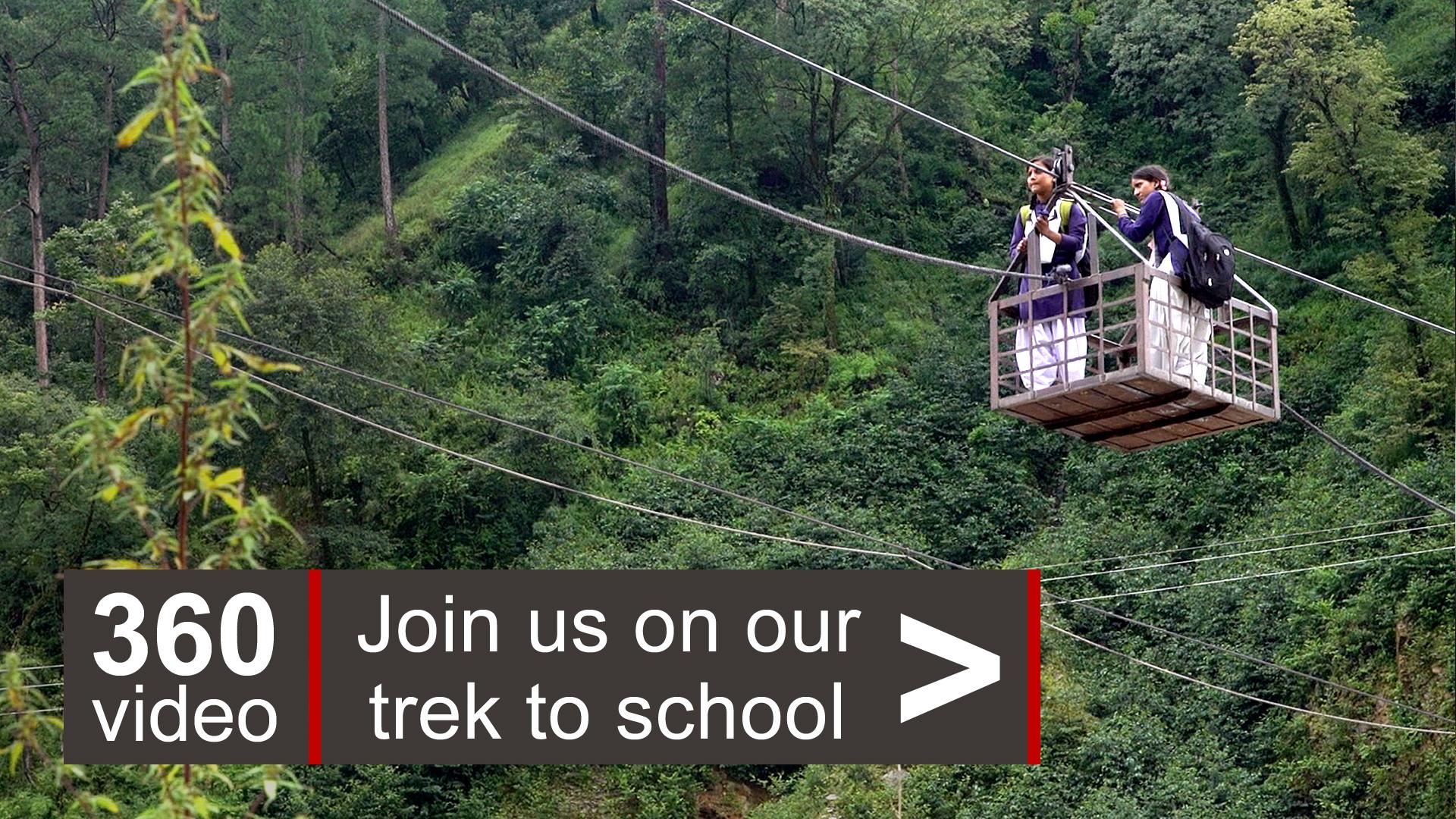
To watch 360 video, you will need the latest version of Chrome, Opera, Firefox or Internet Explorer on your computer.
On mobile - you will need to open the video in the latest version of the YouTube app for Android or iOS.

Radhika and Yashoda's story
It's 05:00 on a sunny morning in the middle of the monsoon season, and sisters Radhika and Yashoda are leaning on the edge of the balcony washing their faces.
They tease each other over who will get more roti for breakfast.
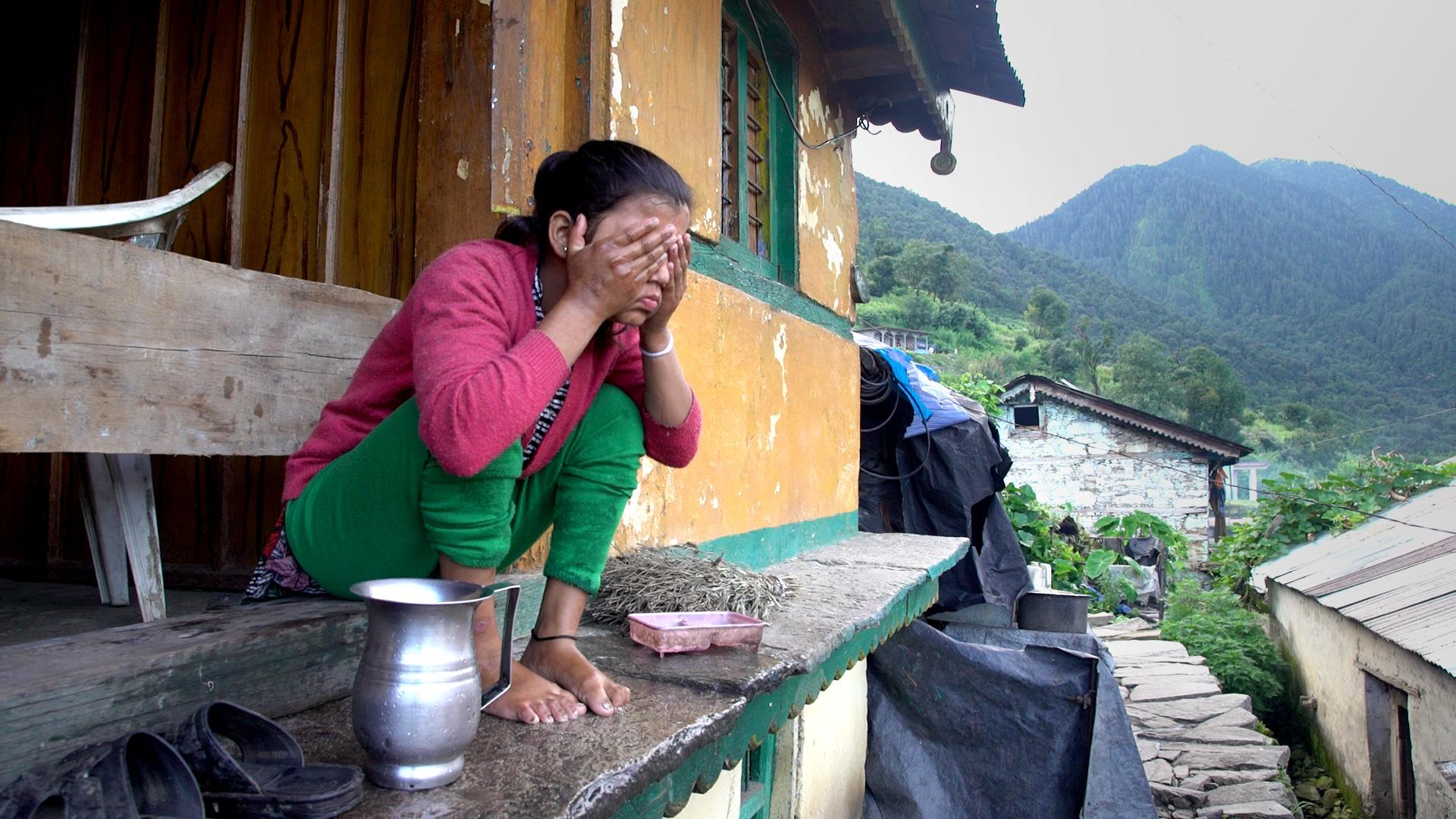
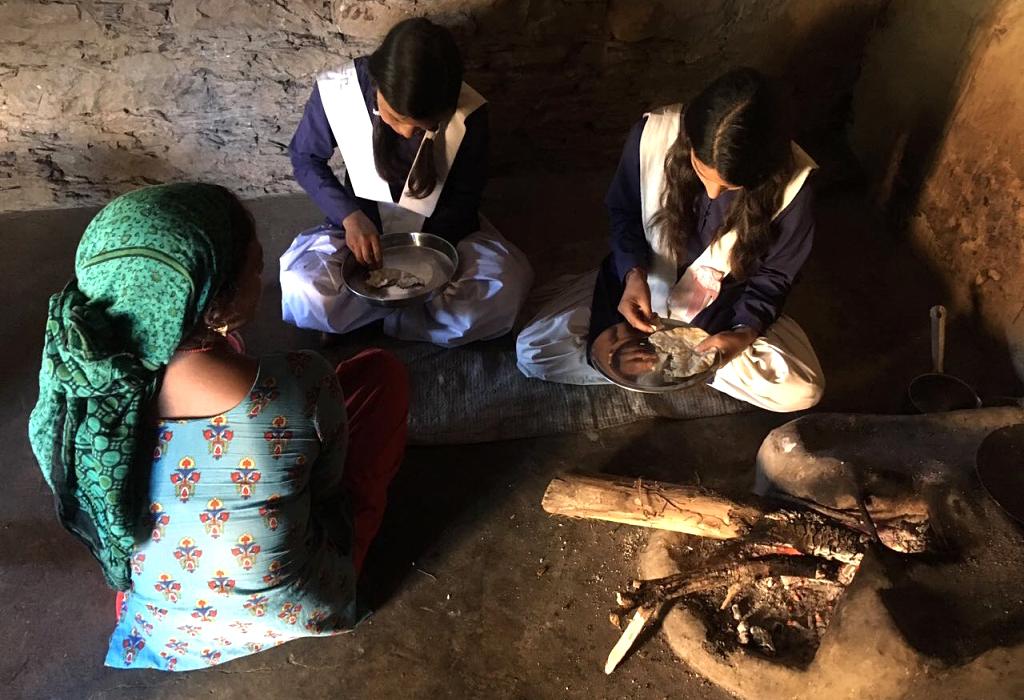
Their playfulness gives little indication that in half an hour, they will set off, on foot, on a perilous journey to school.
It's a trek that will take them through mountainous terrain, thick forests and over a fast-flowing river.
But first, they visit the Hindu temple at the heart of Syaba, a hamlet of 500 people, in the Indian state of Uttarakhand.
The ringing of the bell there invokes the protection of the deities.
The sisters, aged 14 and 16, are two of the six youngsters who make the daily journey to their schools from their remote homes.
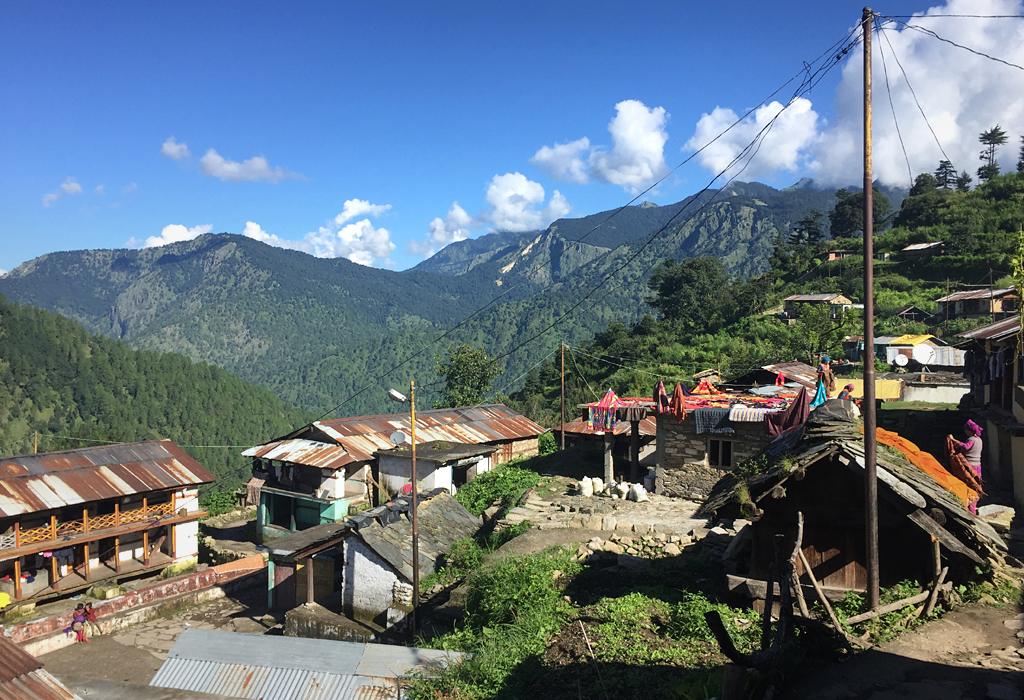
Their father waves them off with a smile and a heavy heart.
The trek takes two to three hours each way, depending on the weather.
But it's the only way to reach the far-off towns of Maneri and Malla, where the girls' schools are located.
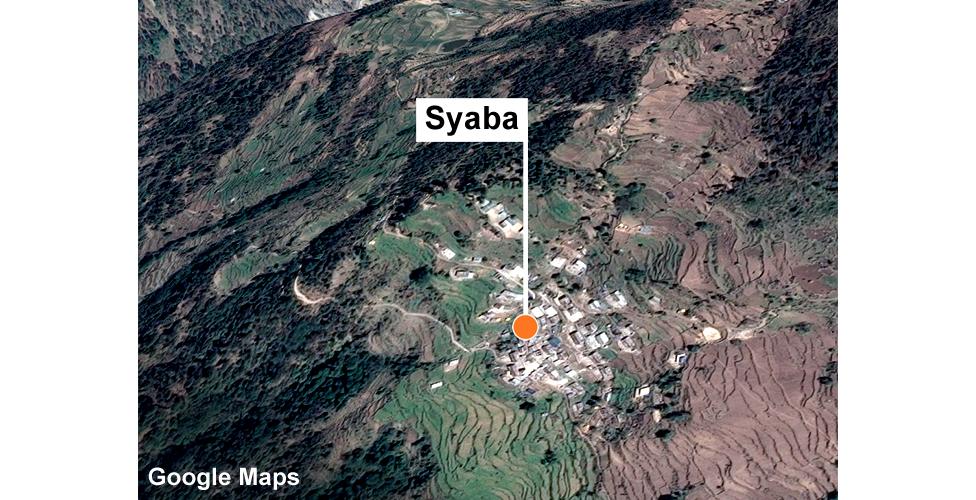
There are no roads in or out of Syaba. Carrying their lunch of vegetable curry and chapati, and their school books, the girls set out on a narrow track covered with loose stones.
One of the most difficult parts of the journey lies some two hours ahead of them - crossing the Bhagirathi River.
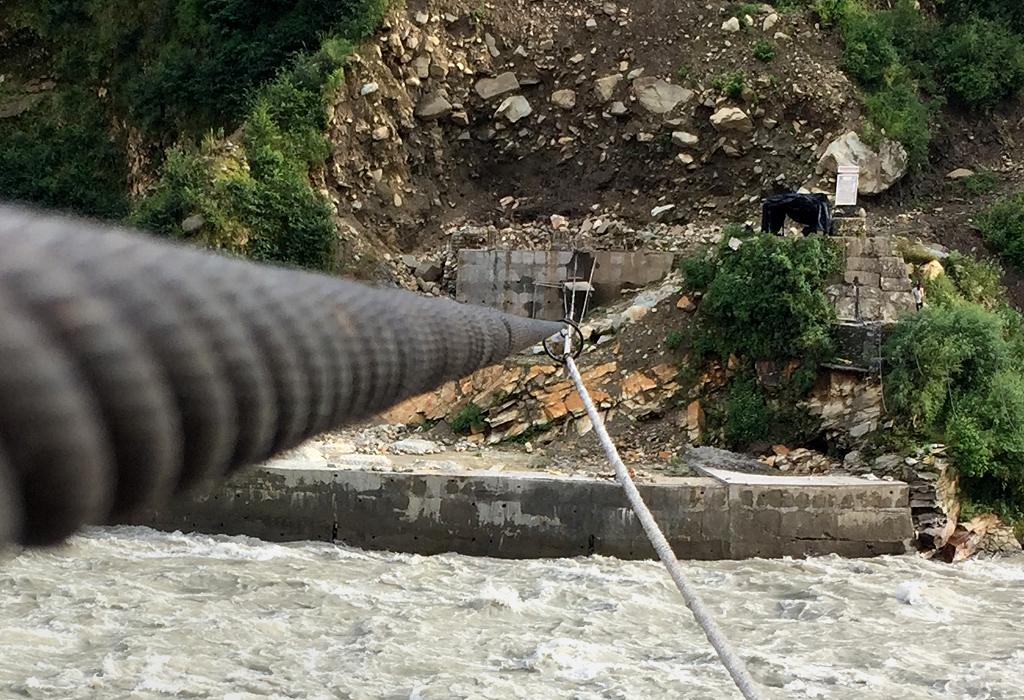
There, they will have to pull themselves to the other side in a metal trolley suspended by a cable high over gushing water.
It requires a lot of strength - more so when it rains and the rope is heavier to pull. Injuries are not uncommon.
Villagers have damaged, and even lost, fingers in the overhead cables.
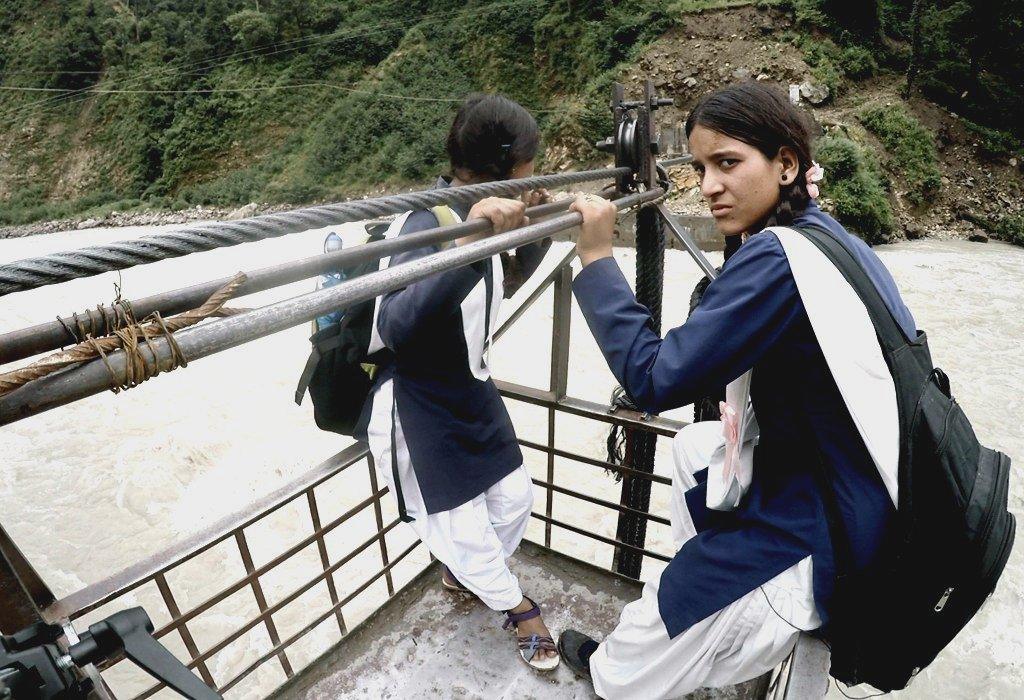
"We have to hold on to the trolley very tight to make sure we don't fall in the gushing waters," says Yashoda.
A cousin once got tangled in the ropes and fell into the water below. Luckily, he was saved.
"We also have to be careful about grease on the wires - our hands get dirty anyway, but we try to protect our clothes from the grease," says Yashoda.
"Our school trousers are white, so the stain shows."
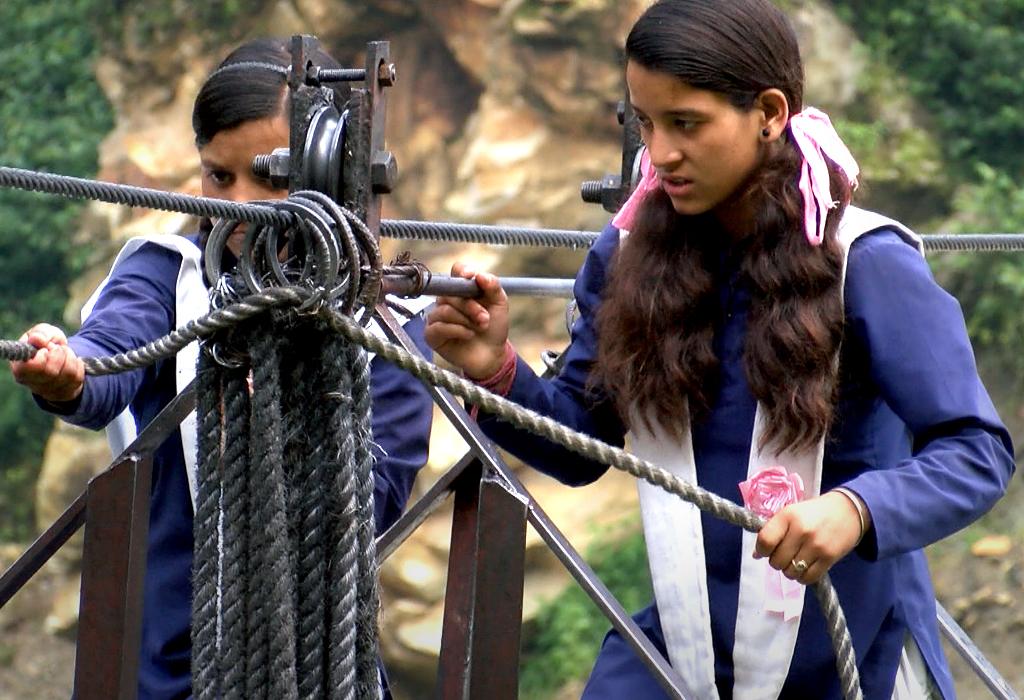
Once they reach the safety of the north bank of the Bhagirathi, they wait for a taxi to take them - by road - to school.
Thick forests present their own dangers. Bears and leopards have been spotted by relatives and neighbours.
There are about 200 villages like Syaba in the mountains of Uttarakhand - that are more than 250 miles (400km) by road from Delhi.
Some are connected by road, but most are accessible only on foot.
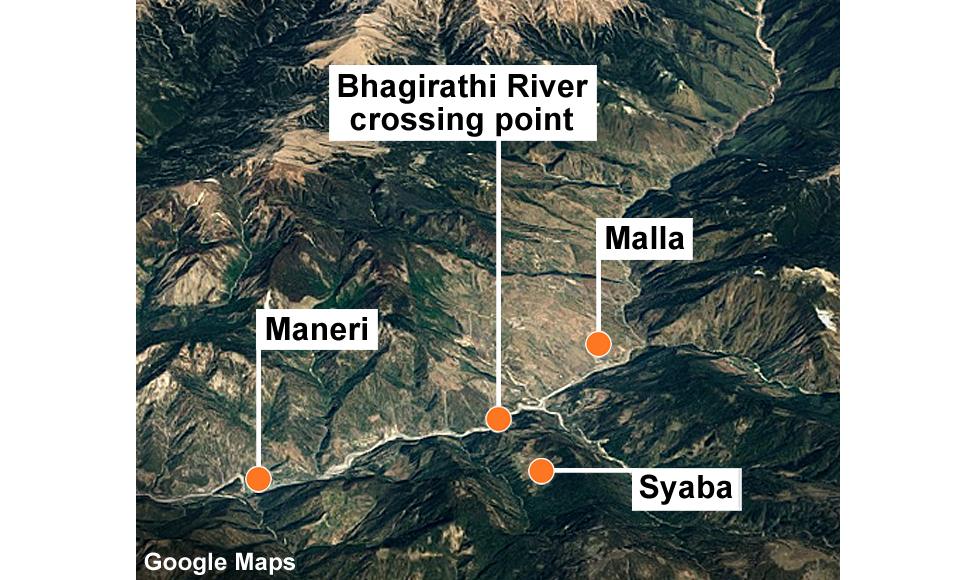
Yashoda dreams of becoming a police officer, while Radhika has her heart set on being a teacher.
Neither wants to get married at a young age - as their parents did - and both want to continue studying. Apart from that, they couldn't be more different.
Yashoda is serious and quiet; Radhika stops chatting for only a few seconds, when she rapidly bends down to remove leeches from her feet.
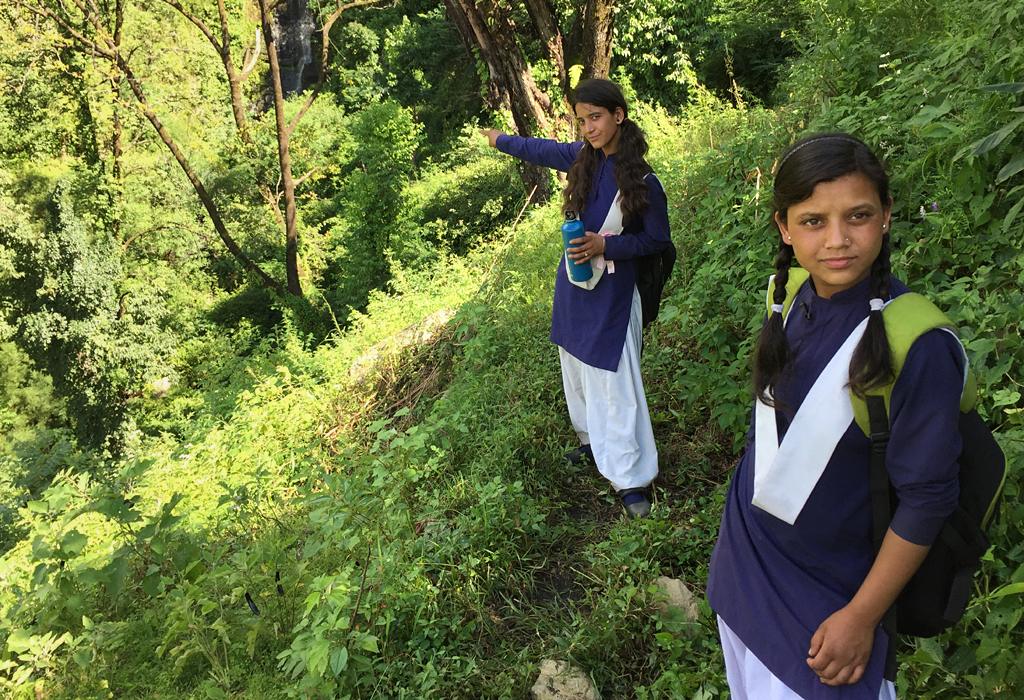
There are plenty of leeches in the muddy path during the monsoon.
Radhika doesn't think much of the leeches.
"I am not afraid of anything," she says. Like her sister, she loves her village and the nature around it.
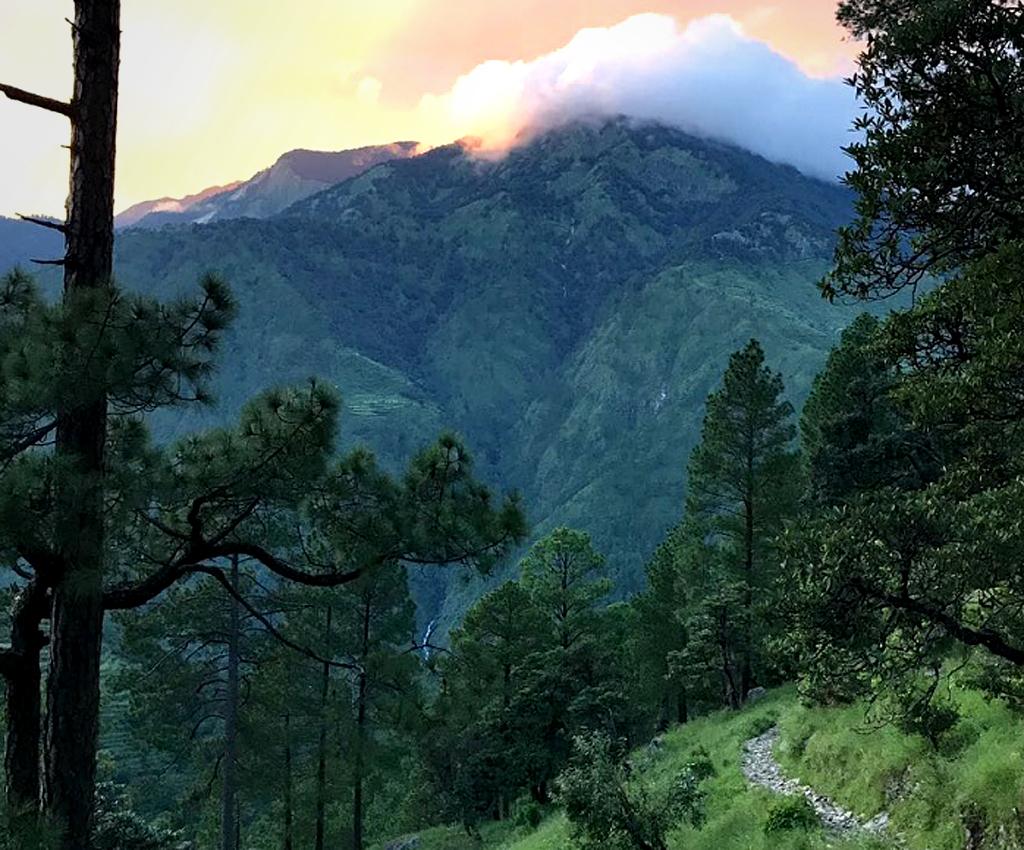
"When it rains, we see so many tiny waterfalls in the mountains. If you come from the city, you will be mesmerised with these falls," says Yashoda.
"The leaves from the trees fall during winter, and it looks as if somebody has laid out a red carpet to welcome an important person in the village."
On their way to school, the sisters stop to drink from a fountain fed by crystal clear water that has travelled down the mountain, and pick wild cucumbers.
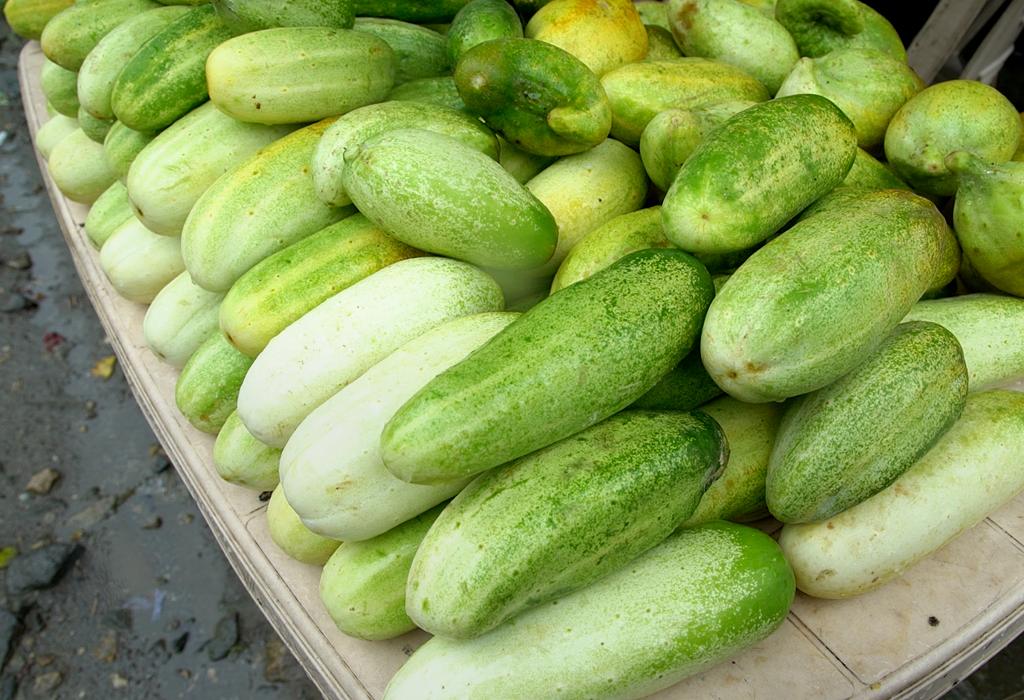
When they get hold of one of their relatives' mobile phones, Yashoda and Radhika often play Bollywood song videos and watch the shapes of romantic actors dancing on the small, pixelated screen.
Their family doesn't own a TV, but one of their uncles does. Sometimes the entire family gathers to watch programmes on it.
On a tranquil Sunday afternoon, as the BBC crew plans the next shoot, Yashoda sits on the bed with the phone playing songs and Radhika wraps a pink scarf around her head before starting to dance.
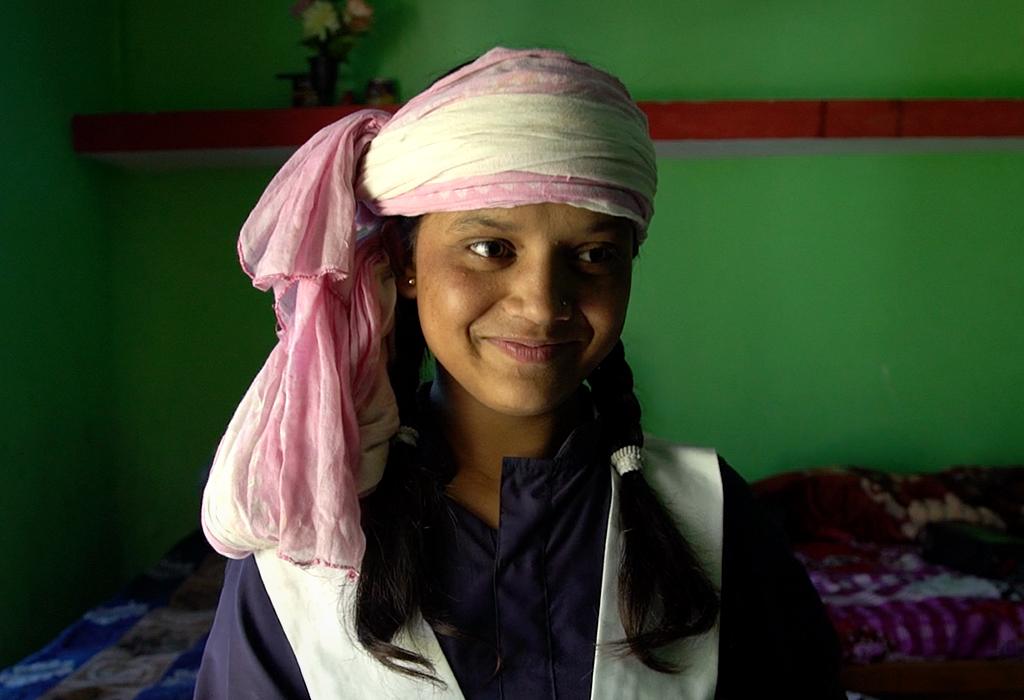
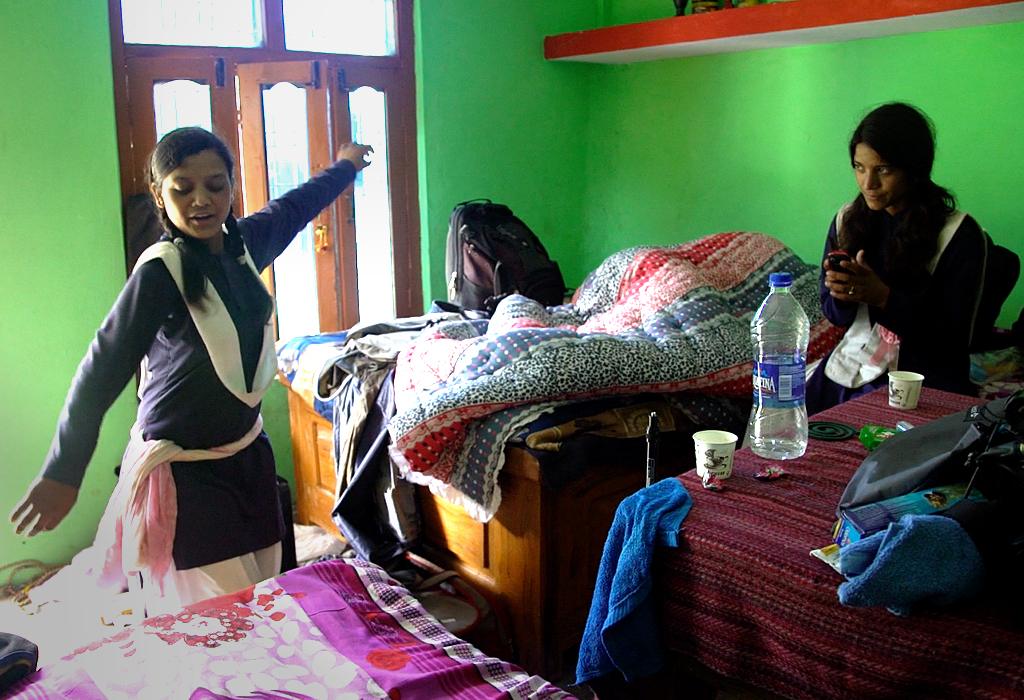
"We dream about many things," says Yashoda.
"We sometimes have dreams about our ghosts, and sometimes we see our younger brother in our dreams, because he lives in the city in a hostel to study and we see him only during weekends."
Most children in Syaba leave school after Year 9. If they want to pursue higher education, they have to leave their home and rent accommodation.
Most families can't afford it.
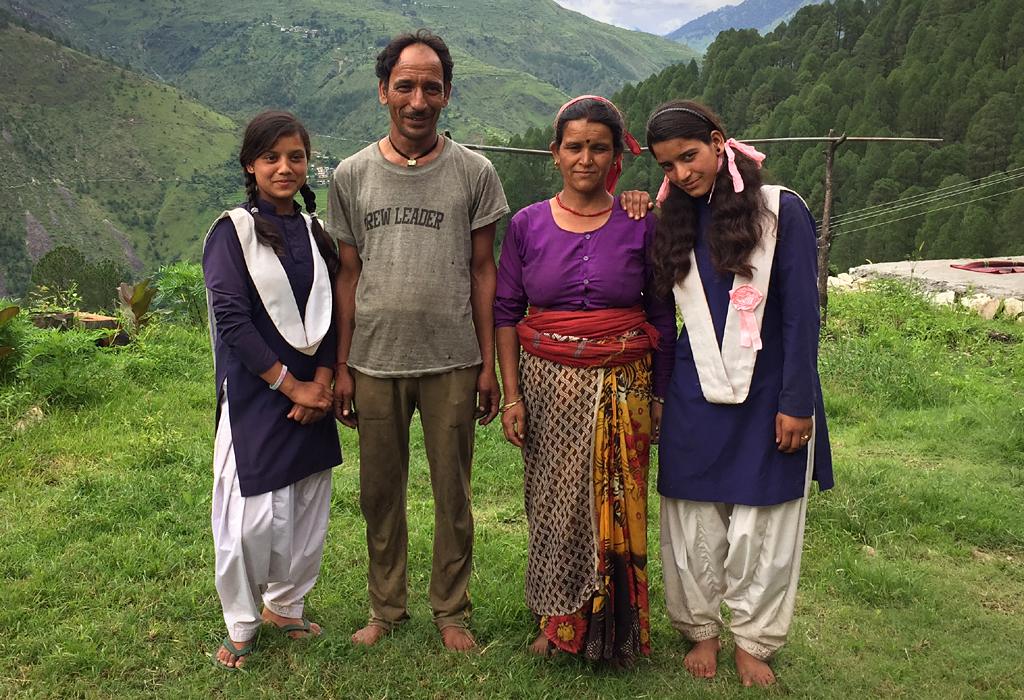
The BBC team is planning on taking headsets to Syaba, so the girls and their family can experience this VR documentary first-hand.
This is their film. And for Yashoda and Radhika's parents, it will be a chance to take the journey to school with their daughters.
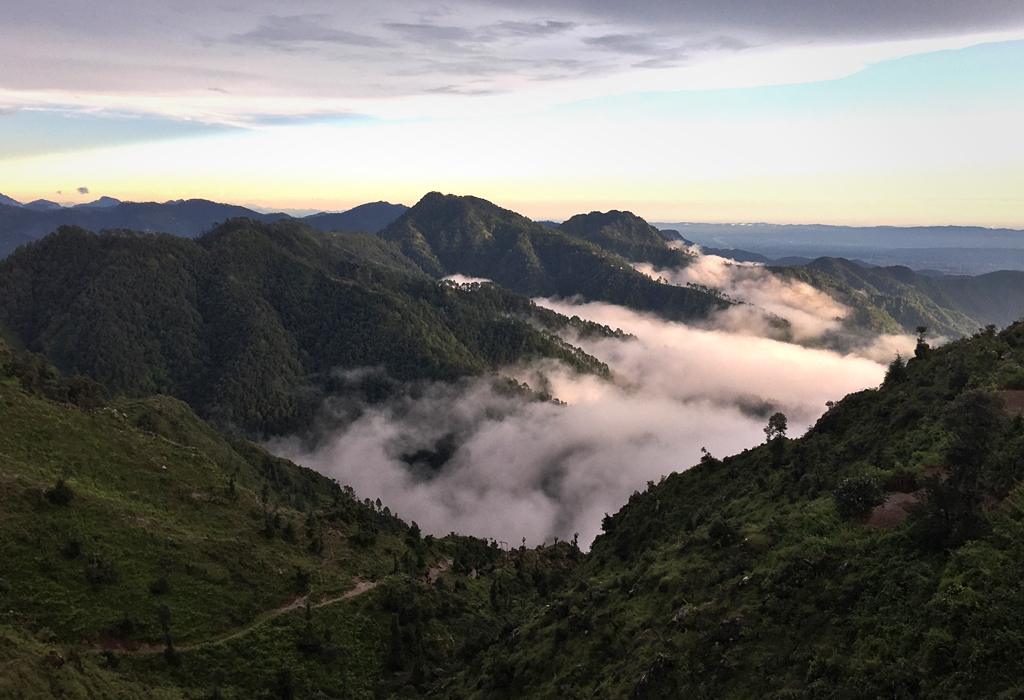
All images subject to copyright.
360 Video
Production:
Direction, script, production - Vikas Pandey, Anna Bressanin
Executive Producer - Zillah Watson
Field production - Nitin Ramola (Uttarkashi), Raju Gusain (Dehradun)
Memesys Culture Lab:
Director of Photography - Rohan Raut
Camera assistant and sound - Raj Samanta
Editor - Sreya Chatterjee
Special thanks to:
The people of Syaba village
Pramod Semwal
Uttarakhand Film Development Board
Junior High School, Malla
Government Inter College, Maneri
